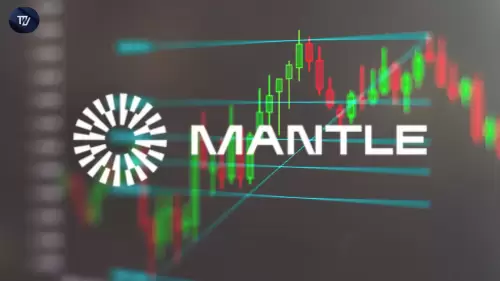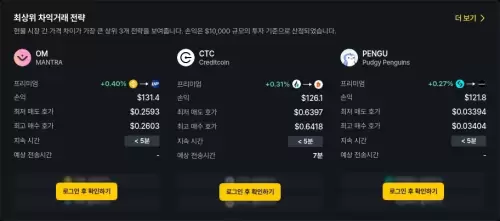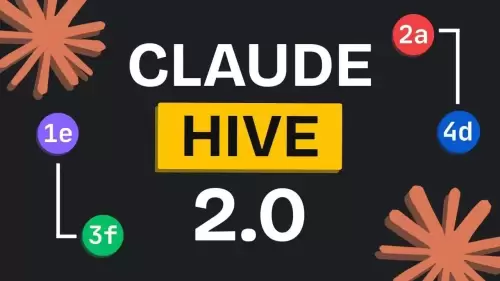 |
|
 |
|
 |
|
 |
|
 |
|
 |
|
 |
|
 |
|
 |
|
 |
|
 |
|
 |
|
 |
|
 |
|
 |
|
Cryptocurrency News Articles
Bitcoin Is the Answer Michigan Needs to Reverse Its Chronic Problems
May 20, 2025 at 08:01 am
Bitcoin may seem complicated or risky, but embracing the leading digital asset can be the answer to reversing the chronic problems facing our state

It doesn’t take a computer expert to understand Bitcoin. Bitcoin may seem complicated or risky, but embracing the leading digital asset can be the answer to reversing the chronic problems facing our state, such as population loss, brain drain and economic stagnation.
Jobs are disappearing, young people are leaving their families behind, and communities are struggling to stay afloat. Politicians continue to offer bailouts, short-term spending and unsustainable programs as solutions.
But the only way to reverse these downward trends is through innovation. And Bitcoin provides a path to an innovation-based economy.
Let’s clear up a common misconception: not all cryptocurrency is the same. Digital assets fall into two general categories — securities (think stocks) and commodities (think gold or oil). Bitcoin is the latter. But unlike any other commodity on Earth, Bitcoin is predictably and reliably scarce. Only 21 million Bitcoin units will ever exist, a cap that is hard coded into its program. That scarcity, combined with its transparency and global nature, gives Bitcoin intrinsic value.
It’s also backed by energy. In a world where time and energy are our most precious resources, Bitcoin offers a way to store both. It’s not controlled by a government or corporation. It can’t be manipulated by any central authority. And it operates on a network of more than 2,000 independent nodes across the globe, making it virtually impossible to counterfeit or alter.
Indeed, Bitcoin is an antidote to scams in the crypto space. Bitcoin has weathered more than 15 years of scrutiny and attacks — from governments, banks, media and skeptics — and is still rising faster than ever before. The annualized return since Bitcoin’s inception is more than 90%. Those fears have been unfounded, and the Bitcoin network gets stronger as more people adopt the digital asset and become part of its ecosystem.
Bitcoin is also a tool to fight inflation. Unlike the dollar, which loses purchasing power annually due to Federal Reserve money printing, Bitcoin’s supply is fixed. This scarcity makes Bitcoin a hedge against the kind of monetary manipulation that has left many Americans struggling to keep up with rising prices.
So, what can Michigan do? Plenty.
Michigan can follow the lead of New Hampshire, which just passed legislation to create a Bitcoin Reserve, allowing up to 5% of its $3.6 billion rainy day fund to be held in Bitcoin. That would currently allow them to purchase roughly 2,269 units of Bitcoin — an asset that has increased in value by over 500% in the past decade. If Michigan does the same with its $20 billion surplus, the state could not only protect its budget against dollar devaluation but also could potentially unlock millions in growth to reinvest in schools, roads and infrastructure.
Michigan can also make its tax policy competitive. Right now, outdated capital gains taxes and unclear regulations discourage tech firms and investors from choosing Michigan. Our state should be restructuring tax treatment for digital assets and incentivizing renewable-powered Bitcoin mining and blockchain companies to set up shop here. Other states are moving fast, and Michigan will be left behind if it does not quickly adopt forward-thinking policies.
The Michigan Bitcoin Trade Council (MiBTC) is working to make these ideas tangible for everyday citizens. The MiBTC’s mission is to help policymakers and the public understand that Bitcoin is not just for day traders looking for a buck, crypto bros surfing the web or Silicon Valley techies. It is an instrument for people who want to see Michigan thrive again.
Michigan needs forward-thinking businesses that understand the long-term value of holding Bitcoin. The state needs local governments who are open to exploring blockchain-based transparency solutions. And most of all, it needs voters who are tired of the same old promises and ready to support bold, future-focused policies.
Bitcoin is not a magic-bullet solution for all of Michigan’s problems, but it is certainly a powerful tool for achieving economic revival. Our state was the mecca for the second Industrial Revolution when the automobile industry was king. There is no reason why it cannot dominate the third Industrial Revolution by embracing Bitcoin and the tech industry to revitalize decaying industrial centers and create thousands of well-paying jobs as well as a better world.
Amber Harris is managing director of the Michigan Bitcoin Trade Council.
Disclaimer:info@kdj.com
The information provided is not trading advice. kdj.com does not assume any responsibility for any investments made based on the information provided in this article. Cryptocurrencies are highly volatile and it is highly recommended that you invest with caution after thorough research!
If you believe that the content used on this website infringes your copyright, please contact us immediately (info@kdj.com) and we will delete it promptly.






























































